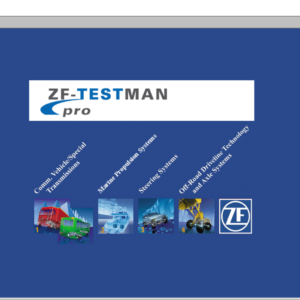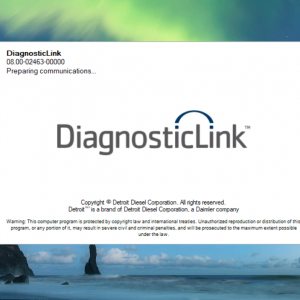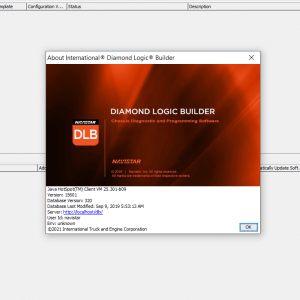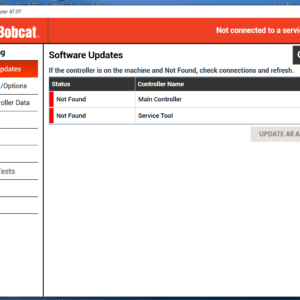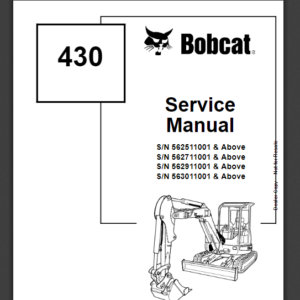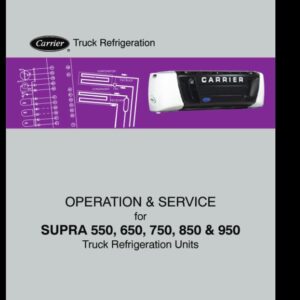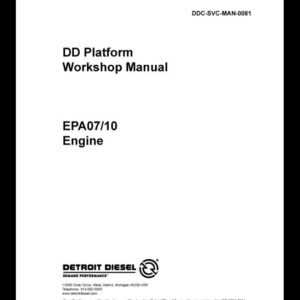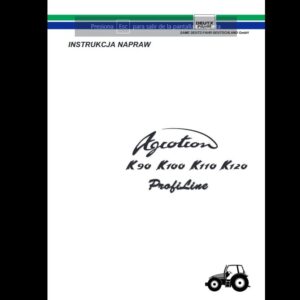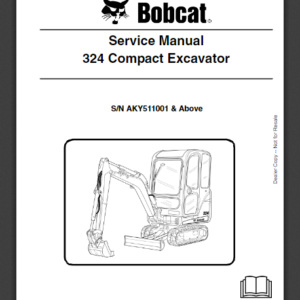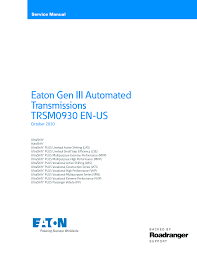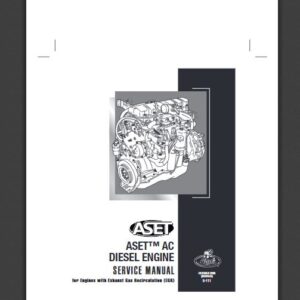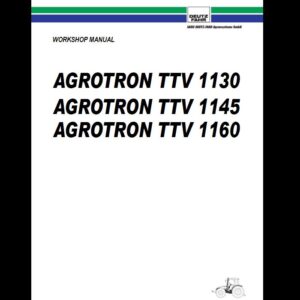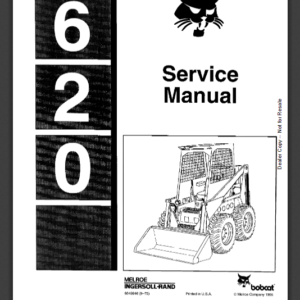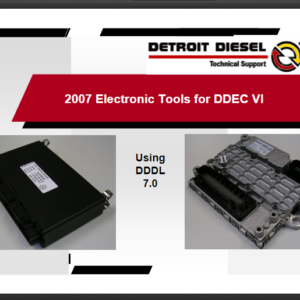Cummins ISX12 CM2250 (2010-12) Fault Code: 559 (CL) PID: 157 SPN: 157 FMI: 18 Injector Metering Rail 1 Pressure- Data Valid But Below Normal Operating Range- Moderately Severe Level
Circuit Description
The pressure control loop relies on fuel pressure supplied to the high pressure pump by the fuel gear pump. The ECM monitors rail fuel pressure and engine operating conditions and changes the flow command to maintain the proper rail fuel pressure. Changes to the flow command result in the opening (or closing) of the fuel pump actuator to supply more (or less) fuel to the high pressure pump.
Component Location
The high pressure fuel pump is mounted to the gear housing on the intake side of the engine.
Conditions for Running the Diagnostics
This diagnostic runs continuously when the engine is operating.
Conditions for Setting the Fault Codes
The ECM has detected the measured fuel rail pressure is below the commanded fuel rail pressure by at least 250 bar [3625 psi] for 7 seconds.
Action Taken When the Fault Code is Active
The ECM illuminates the amber CHECK ENGINE lamp and/or the malfunction indicator lamp (MIL) immediately when the diagnostic runs and fails.
Active and stationary regeneration of the diesel particulate filter will be disabled.
The exhaust gas recirculation (EGR) valve will be closed.
Engine torque will be reduced if the engine is operated for an extended period of time with this fault active.
Conditions for Clearing the Fault Code
To validate the repair using a Diagnostic Road Test, utilize a route that incorporates both stop-and-go city driving and steady state highway driving. It may be necessary to load the unit for certain diagnostics in the ECM to run.
To validate the repair using a Chassis Dynamometer Test, utilize a routine that incorporates acceleration and motoring events, steady state highway operation, and load. This will simulate normal driving and allow the diagnostics in the ECM to run.
The fault code status displayed by INSITE? electronic service tool will change to INACTIVE immediately after the diagnostic runs and passes.
The ECM will turn off the amber CHECK ENGINE lamp after the diagnostic runs and passes.
For On-Board Diagnostic (OBD) engines, the ECM will turn off the MIL after three consecutive trips where the diagnostic runs and passes.
The Reset All Faults command in INSITE? electronic service tool can be used to clear active and inactive faults, as well as extinguish the MIL for OBD applications.
Shop Talk
The fuel system is designed to operate on clean fuel. It has two fuel filters to maintain this cleanliness. Carelessness in handling and storage of fuel system components during the repair can subject the precision components to damaging debris. Before servicing any fuel system components (such as fuel lines, fuel pump, injectors, etc.), clean the fittings, mounting hardware, and the area around the component to be removed. Store the components in a clean environment. Keep all fuel port openings and line ends covered so that no dirt can enter. Refer to Procedure 000-009 in Section 0.
Fault Code 559 sets when the engine is operating and measured rail fuel pressure remains at least 250 bar [3625 psi] less than commanded pressure. Once detected, Fault Code 559 will remain active until the engine is turned OFF or until the measured rail fuel pressure matches the commanded rail fuel pressure. It is typical for Fault Code 559 to become active when the engine is heavily loaded and become inactive when the engine is lightly loaded.
When Fault Code 559 occurs, the fuel system has lost the ability to maintain rail fuel pressure.
Possible causes of this fault code include:
Fuel inlet restrictions (filters, low pressure fuel lines, OEM plumbing, etc.)
Sticking check valve in ECM cooling plate.
Fuel gear pump output low
Fuel gear pump pressure regulator stuck open (this can result in hard start and/or no-start complaints)
High-pressure pump capacity decay (high leakage to drain from the high-pressure pump)
Fuel rail pressure relief valve leaks to drain
Fuel rail pressure relief valve opens at a pressure too low (Fault Code 3727 detects this condition)
Injector fuel circuit leaks to drain (injector body, high-pressure connectors, etc.)
Air in the fuel or suction leaks at gear pump shaft seal (can result in hard start and/or no start complaints)
Fuel level is below the suction line in the fuel tank
Restricted fuel screen, located in the banjo bolt, at the high-pressure fuel pump inlet, if equipped
External fuel leaks.
If Fault Code 559 is inactive and there are not any existing performance complaints, it is possible the vehicle was run out of fuel or the fault became active if the engine was not primed following fuel filter replacement. However, if the customer reports that the fault code becomes active during engine operation, the steps in this fault code diagnostic tree can be used to identify the cause and make a repair.
If the engine will not start, Fault Code 559 becomes active during cranking, and no speed sensor fault codes exist, it is likely that the engine is not developing rail pressure during cranking. Possibly, the engine is not primed, gear pump pressure is too low, or the high-pressure fuel system components have excessive leakage to drain. The procedures referred to in this troubleshooting tree also have checks for engine no start conditions.
The steps of this fault code tree assume that the fault condition is repeatable (this does not necessarily mean that the fault code is active with the engine at idle). The troubleshooting has been designed to isolate the problem into four categories:
1. Other more precise fault codes exist (example: electrical circuits faults).
2. Isolate the high-pressure system; determine if the high-pressure system has high leakage.
3. Isolate the low pressure system; determine if the low-pressure system works correctly. The system must first be primed. Then, it is important to note that checks of gear pump pressure and inlet restriction involve using a special service tool that causes the flow rate to increase to a rated flow. Fuel gear pump pressure and/or inlet restriction can not be accurately measured without a method of increasing the flow (i.e. using the special service tool or operating the engine at full power).
4. Verify the ECM calibration is correct. Check the calibration revision history found on QuickServe? Online for applicable fixes to the calibration stored in the ECM. If necessary, calibrate the ECM. Refer to Procedure 019-032 in Section 19.
Troubleshooting inactive Fault Code 559 can be difficult. For engines with high counts of inactive Fault Code 559, or if the troubleshooting tree has been exhausted, operate the engine on a chassis dynamometer or conduct a diagnostic road test to duplicate the fault code. Be certain to have a fuel pressure gauge installed at the pressure filter outlet side during the test.
If the accuracy of the fuel rail pressure sensor is being questioned, a key ON accuracy check can be performed. When checking the fuel rail pressure sensor accuracy, make sure the high-pressure fuel rail is not pressurized. The fuel pump, high-pressure fuel lines, and fuel rail contain very high-pressure fuel. Do not loosen any fittings while the engine is running. Once the engine is keyed OFF, there could be a significant amount of time waiting for the fuel to depressurize to 0 bar [0 psi]. It is necessary to manually relieve the pressure from the high-pressure fuel rail by loosening the pump to rail line at the rail. At key ON, a depressurized rail pressure sensor should read 0 ? 43 bar [624 psi].
Air-in-fuel will cause starting complications. Use the following procedure in the ISC8.3 and ISL9 CM2250 Service Manual, Bulletin 4022257. Refer to Procedure 006-003 in Section 6.
Possible Cause:
1) Loose Injector high-pressure connector
2) High-pressure connector failure
3) Injector failure
4) Fuel rail pressure relief valve failure
5) High-pressure fuel pump head failure
6) Fuel Connector(s) failure
7) ECM cooling plate check valve failure
8) ECM calibration
-
Detroit Diesel Diagnostic Link DDDL 8.0 PRO PROFESSIONAL Software trucks
Detroit $25.00Rated 0 out of 5
Related products
-
Allison 1000 & 2000 Gen 4 Fault Codes: U1300 J1850 (Class 2) Serial Data Communication Link Low
1000 & 2000 Gen 4 $50.00Rated 0 out of 5 -
Allison 1000 & 2000 Gen 4 Fault Codes: P0123 Pedal Position Sensor Circuit High Voltage
1000 & 2000 Gen 4 $50.00Rated 0 out of 5 -
Allison 1000 & 2000 Gen 4 Fault Codes: P0846 Transmission Pressure Switch Solenoid D Circuit Stuck Open
1000 & 2000 Gen 4 $50.00Rated 0 out of 5 -
Allison 1000 & 2000 Gen 4 Fault Codes: P1688 Unmanaged Engine Torque Delivered To TCM Signal
1000 & 2000 Gen 4 $50.00Rated 0 out of 5 -
Allison 1000 & 2000 Gen 4 Fault Codes: P1779 Engine Torque Delivered To TCM Signal
1000 & 2000 Gen 4 $50.00Rated 0 out of 5 -
Allison 1000 & 2000 Gen 4 Fault Codes: P2771 Four-Wheel Drive Switch Circuit
1000 & 2000 Gen 4 $50.00Rated 0 out of 5 -
Allison 1000 & 2000 Gen 4 Fault Codes: U0032 J1850 (Class 2) Serial Data Communication Link High
1000 & 2000 Gen 4 $50.00Rated 0 out of 5 -
Allison 1000 & 2000 Gen 4 Fault Codes: P0848 Transmission Pressure Switch Solenoid D Circuit High
1000 & 2000 Gen 4 $50.00Rated 0 out of 5 -
Allison 1000 & 2000 Gen 4 Fault Codes: U1000 Class 2 Loss of Serial Data Communication
1000 & 2000 Gen 4 $50.00Rated 0 out of 5 -
Allison 1000 & 2000 Gen 4 Fault Codes: U2104 CAN Bus Reset Counter Overrun
1000 & 2000 Gen 4 $50.00Rated 0 out of 5 -
Allison 1000 & 2000 Gen 4 Fault Codes: P0218 Transmission Fluid Over Temperature Condition
1000 & 2000 Gen 4 $50.00Rated 0 out of 5 -
Allison 1000 & 2000 Gen 4 Fault Codes: U0100 CAN Bus ECM Error
1000 & 2000 Gen 4 $50.00Rated 0 out of 5 -
Allison 1000 & 2000 Gen 4 Fault Codes: U1064 J1850 (Class 2) TBC Controller State of Health Failure
1000 & 2000 Gen 4 $50.00Rated 0 out of 5 -
Allison 1000 & 2000 Gen 4 Fault Codes: P0880 TCM Supply Voltage
1000 & 2000 Gen 4 $50.00Rated 0 out of 5 -
Allison 1000 & 2000 Gen 4 Fault Codes: U1096 J1850 (Class 2) IPC Controller State of Health Failure
1000 & 2000 Gen 4 $50.00Rated 0 out of 5
-
SERVICE MANUAL DETROIT DIESEL DD15 , DD13 Service Workshop Repair Manual
DETROIT $25.00Rated 0 out of 5 -
SERVICE MANUAL Eaton Gen III Automated TransmissionsTRSM0930 EN-USOctober 2020
TRUCK MANUALS $24.00Rated 0 out of 5

